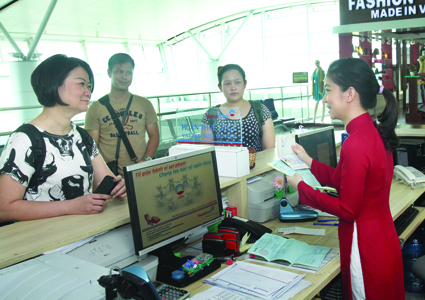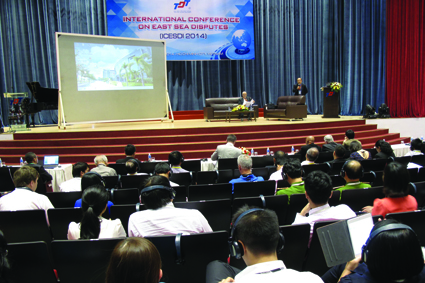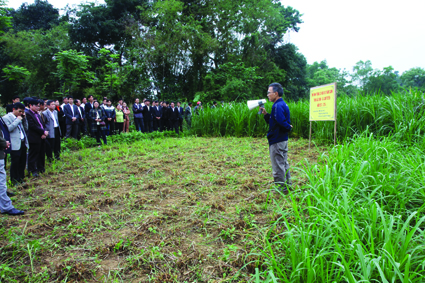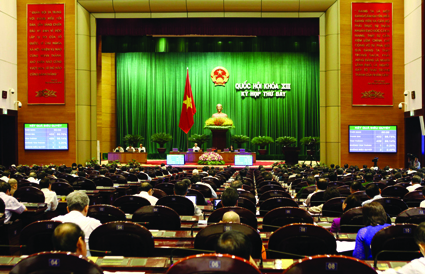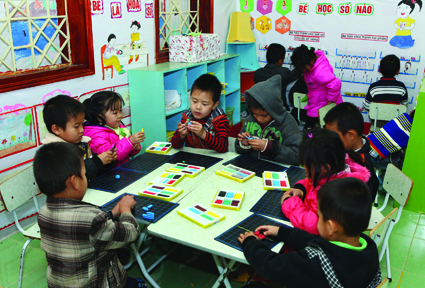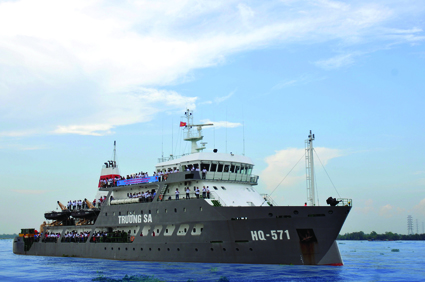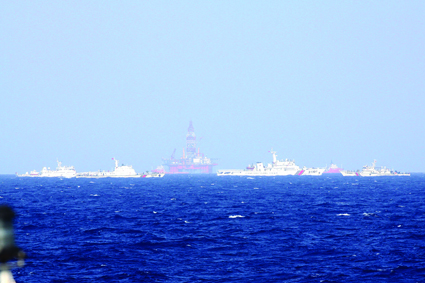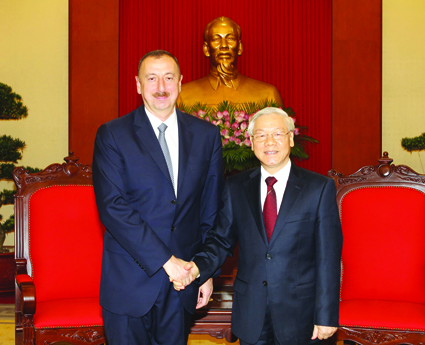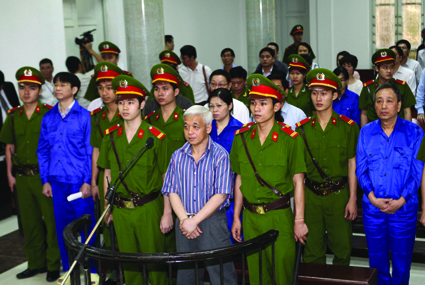The Geneva Agreement on the ceasefire in Vietnam was an important step forward in the country’s struggle for liberation and confirmed Vietnamese people’s desire for peace, independence, sovereignty, and territorial unity and integrity, President Truong Tan Sang said at a ceremony held in Hanoi on July 18 to mark the 60th anniversary of the Geneva Agreement.

He said the agreement, signed in Geneva, Switzerland, on July 20, 1954, was the first international document acknowledging the independence, sovereignty, and territorial unity and integrity of Vietnam.
He described the agreement as a great victory of the then Democratic Republic of Vietnam, the signing of which followed intense negotiations running through 75 days and nights with eight overall sessions and 23 small-scale meetings during the Geneva Conference.
The agreement created a legal foundation and a spiritual encouragement for Vietnamese people to win their struggle for complete national liberation, the President said.
According to President Sang, Vietnam’s success in the Geneva Conference was the victory of great patriotism, determination for independence, desire for freedom and love for peace of the Vietnamese people for thousands of years.
The success was the victory of the brilliant guideline of revolution, resistance and diplomacy under the wise leadership of the Communist Party of Vietnam and President Ho Chi Minh. It was the victorious culmination of nine years full of tremendous hardship and great sacrifices and also the victory for the young revolutionary diplomacy of the Democratic Republic of Vietnam.
The President said the victory at the Geneva Conference was also a fruit of international solidarity. Either during the battle at the Geneva Conference, later efforts to enforce the Geneva Agreement’s provisions on the ceasefire in Vietnam, or protracted struggle against colonialism to achieve independence, freedom, and territorial unity and integrity of Vietnam, our people has received the great support and assistance from Lao and Cambodian revolutionary forces, socialist nations and international friends as well as from peace and justice loving people around the world.
Key tasks for diplomatic performance
The President outlined four key tasks for diplomatic performance.
First, to continue to strengthen the Party’s comprehensive and unified leadership and the State’s centralized management in foreign affairs. That includes close and harmonious coordination of diplomatic activities of the Party, State and people; combination of political, economic and cultural diplomacy, connecting foreign affairs activities to economic, defense and security. These all aim at creating a unified state to safeguard national defense and development.
Second, to continue our foreign policy of independence, self-reliance, peace, cooperation for mutual development; ensure national interests as the highest objective and principle; uncompromisingly fight any attempt to infringe upon the independence, sovereignty, and territorial unity and integrity of Vietnam; be consistent in our policy to settle disputes by peaceful means; and observe regional commitments and international law.
Third, to promote proactive and deeper international integration to effectively and fully tap available resources for national development and defense; improve our collective strengths; enhance our international position; and consistently implement the policy “Vietnam is a friend, reliable partner and responsible member of the international community, striving for peace, independence, cooperation and development”.
Fourth, in the context of deeper globalization and international integration, the implementation of foreign policy is the task not only of the diplomatic sector but also of the entire political system and people. Therefore, diplomats must be highly professional with political quality and capable of meeting the requirements of the new situation. It is also necessary to improve capacity and knowledge of all organizations, agencies, localities, businesses and individuals in handling foreign-related matters, winning the trust and friendship of foreign friends to Vietnam. This will contribute to the successful implementation of the Party’s and State’s foreign policy.
Lessons for diplomatic sector
In his article entitled “Geneva Conference 1954 - Lessons for Vietnam’s diplomatic sector,” Deputy Prime Minister and Foreign Minister Pham Binh Minh came up with the five lessons.
The first lesson is considering the national interests as both the goal and the highest principle in foreign affairs.
The Geneva Conference was the first time Vietnam’s diplomatic sector participated in a complex multilateral negotiation which was dominated by major players.
Consistent with the fundamental goals of independence, sovereignty, and territorial unity and integrity, Vietnam insisted on achieving a comprehensive solution on both military and political aspects.
Military solutions included a ceasefire agreement, the withdrawal of foreign troops, and restoration of peace in Indochina. Political solutions were to ensure peace, independence, and territorial unity and integrity of Vietnam, Laos and Cambodia and end the French colonial rule in Indochina.
The second is maintaining independence and self-reliance in foreign affairs.
The Geneva Conference was initiated and organized by powerful countries that strived to induce and pressure Vietnam to accept a solution that would benefit them. The Democratic Republic of Vietnam went to the conference as the winner of the Bien Dien Phu battle and clearly had in mind their negotiation goals. But big countries always intervened and manipulated the negotiation plans, the opening and concluding time of negotiations, and coordination among assigned forces during the negotiations. In such context, the lesson of holding firm independence and self-reliance in diplomatic negotiations in the Geneva Conference is extremely precious.

The third is the importance of combining military affairs, politics and diplomacy to create synergy under which strength in battle is the decisive factor for the success of the negotiations. The Dien Bien Phu historic victory was the factor deciding the success of the Geneva Conference.
The fourth is the art of winning victory step by step. Understanding the real strengths of Vietnam, the benefits of powerful countries including the Soviet Union and China and the international context, Vietnam decided to sign the Geneva Agreement with provisions inadequately reflecting Vietnam’s victory on the battlefield. This decision is an example of the gradual victory of Vietnam foreign policy.
The fifth is the close combination of diplomatic struggles with public opinion struggles, enlisting the support of the international community. Vietnam went to the Geneva Conference with a righteous posture, striving for peace, independence, national unification and territorial integrity, in accordance with the common aspirations of mankind, including the progressive French people. Through talks and contacts with the press at the conference, Vietnam made the public understand its goodwill as well as plots and actions of hostile forces which forced Vietnam to accept a disadvantaged solution. Taking advantage of international support at the Geneva Conference is a specific example of the combination of the national strengths with the power of age.
Minh quoted Party General Secretary Nguyen Phu Trong’s instructions at the 28th diplomacy conference last December as saying that the diplomatic sector should continue keeping its leading role in ensuring peaceful, favorable environment for national construction and defense and realizing industrialization and modernization and strategic tasks on socio-economic development to turn the country into an industrialized one toward modernity by 2020; and as suggesting that lessons from the Geneva Agreement be carefully studied and creatively applied in reality to accomplish the tasks assigned to the diplomatic sector.-
